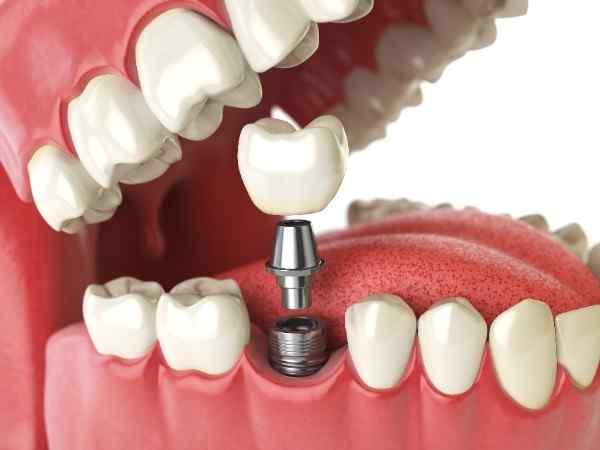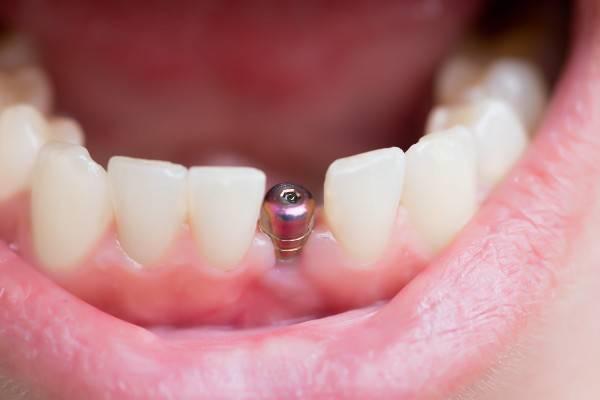What to Do If a Dental Implant Fails

Dental implants are celebrated for their high success rates often over 95% making them a leading choice for replacing missing teeth. They offer stability, natural aesthetics, and long-term functionality. However, while the majority of patients enjoy lifelong success with their implants, there are rare cases where problems occur.
If you have undergone a dental implant procedure and feel something is not quite right, it is important to act quickly. Understanding the signs of failure, the reasons behind it, and the available treatment options can make the difference between saving the implant or replacing it entirely.
Understanding Dental Implant Failure
A dental implant is designed to fuse with the jawbone in a process called osseointegration. When this process is interrupted or the surrounding tissues become compromised, the implant may fail. Failures are categorised into:
- Early failure– when the implant does not integrate properly within the initial healing period.
- Late failure– when issues develop months or years after a previously successful implant.
The causes vary, but common factors include:
- Poor oral hygiene or untreated gum disease
- Inadequate bone density or quality
- Overloading the implant with excessive bite force
- Lifestyle habits like smoking
- Certain systemic health conditions such as diabetes
Signs Your Dental Implant Might Be Failing
Recognising the early warning signs allows you to seek prompt treatment and potentially avoid the need for complete replacement. Symptoms to look out for include:
- Persistent or worsening pain beyond the normal healing period
- Visible gum recession around the implant
- Mobility or looseness of the implant post
- Swelling, redness, or tenderness in the surrounding tissue
- Bleeding or discharge of pus near the implant site
- Difficulty chewing, especially on the side with the implant
Any of these symptoms should prompt you to contact your private dentist in Belfast without delay.
Immediate Steps to Take if You Suspect Implant Failure
Taking the right steps in the early stages of a problem can make a significant difference to the outcome.
- Stop Using the Implant for Chewing– Limit pressure on the area to prevent further strain or damage.
- Maintain Excellent Oral Hygiene– Keep the area clean with gentle brushing and flossing to reduce bacteria buildup.
- Contact Your Dentist Immediately– Only a dental professional can accurately diagnose and recommend the correct intervention.
Common Causes of Dental Implant Failure in Detail
While every patient’s case is unique, most implant failures can be traced to a few key causes:
1. Peri-implantitis (Infection)
This inflammatory condition affects the gum and bone around the implant, often caused by poor plaque control or inadequate oral hygiene.
2. Bone Loss
Implants rely on sufficient bone density for stability; without it, the implant cannot integrate successfully.
3. Mechanical Overload
Placing too much biting force on an implant before it has fully healed can cause movement and prevent proper integration.
4. Medical Factors
Conditions such as uncontrolled diabetes or autoimmune disorders can slow healing and increase the risk of infection.
Possible Treatment Options for a Failed Dental Implant
Treatment will depend on the cause and severity of the failure. In some cases, the implant can be stabilised; in others, replacement is the only option.
|
Treatment Option |
Purpose |
|
Non-surgical cleaning |
Removes plaque and bacteria from the implant’s surface to reduce inflammation |
|
Surgical cleaning (debridement) |
Thoroughly cleans infected tissue and the implant surface |
|
Bone grafting |
Rebuilds lost bone before re-attempting implant placement |
|
Replacement implant |
Inserts a new implant when the old one cannot be saved |
|
Bite adjustment |
Corrects uneven bite pressure to protect the implant |
How to Prevent Dental Implant Failure
Prevention starts from the day your implant is placed and should continue throughout your lifetime.
- Attend Regular Dental Appointments– Professional monitoring allows for early detection of issues.
- Quit Smoking– This reduces healing complications and improves long-term success rates.
- Follow Post-Surgery Instructions– Your dentist’s aftercare advice is designed to protect the implant as it heals.
Long-Term Care for Dental Implants
Even after your implant has healed, maintenance is essential. Brush at least twice daily with a soft-bristled toothbrush and fluoride toothpaste, floss carefully around the implant, and use any specialist cleaning aids recommended by your dentist.
Dietary habits can also affect implant health. Avoid excessive consumption of very hard foods and consider using a mouthguard at night if you grind your teeth. Staying hydrated and maintaining a balanced diet will also support gum and bone health.
When to Seek Professional Help
While minor discomfort can be normal in the early days after surgery, any pain, swelling, or looseness beyond the expected recovery period should be taken seriously. Prompt assessment can help avoid further bone loss, additional surgeries, or complete implant loss.
The best course of action is to maintain open communication with your dental team and never ignore any unusual changes around the implant site.
Why Acting Quickly Matters
Delaying treatment for a failing implant can make the problem worse, often leading to more complex and costly solutions. Acting early not only protects your investment but also helps maintain your confidence and overall oral health.
The Emotional Impact of Dental Implant Failure
Beyond the physical discomfort and functional issues, a failing implant can also affect your confidence and emotional well-being. For many, a dental implant Belfast procedure is more than just a treatment it’s an investment in their appearance, self-esteem, and quality of life. When problems arise, it’s natural to feel frustrated or anxious.
Understanding that implant failure is not the end of your journey is important. With modern dental technology and skilled care from a private dentist in Belfast, there are effective solutions available. Whether it involves repairing the existing implant or replacing it entirely, you can regain both your smile and your confidence with the right approach.
Conclusion
Dental implant failure is rare, but it is important to know the signs and act promptly if problems arise. Whether you are experiencing discomfort, looseness, or gum changes after a dental implant Belfast procedure, consulting a private dentist in Belfast without delay is the best way to protect your smile. At EDB, we are committed to helping patients maintain their implants for years to come, offering both preventative care and advanced treatments to address any issues.
- Vibnix Blog
- Politics
- News
- Liberia News
- Entertainment
- Technology
- Образование
- Art
- Causes
- Crafts
- Dance
- Drinks
- Film
- Fitness
- Food
- Игры
- Gardening
- Health
- Главная
- Literature
- Music
- Networking
- Другое
- Party
- Religion
- Shopping
- Sports
- Theater
- Wellness





